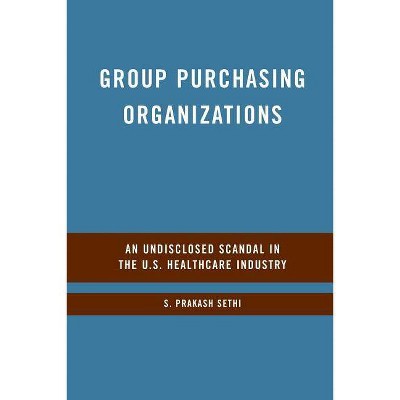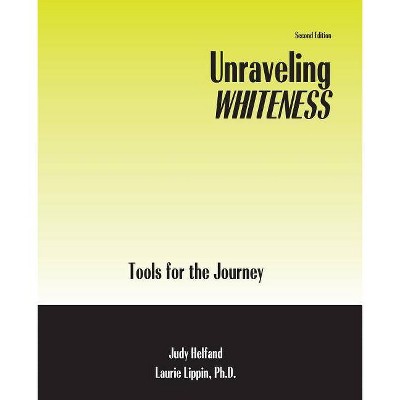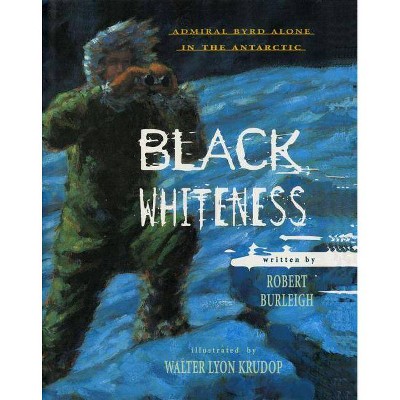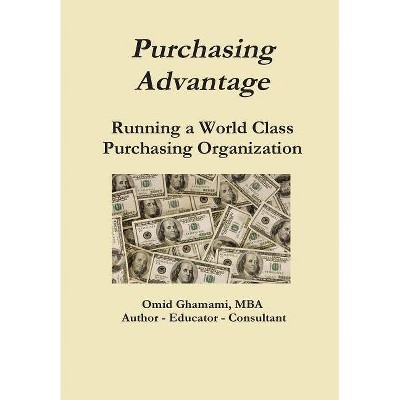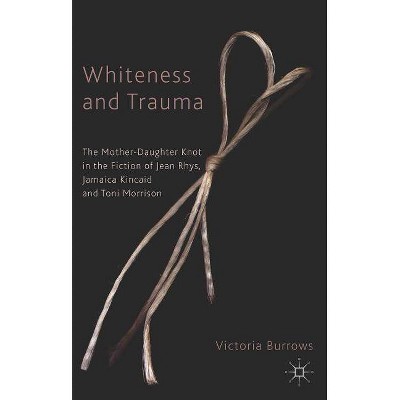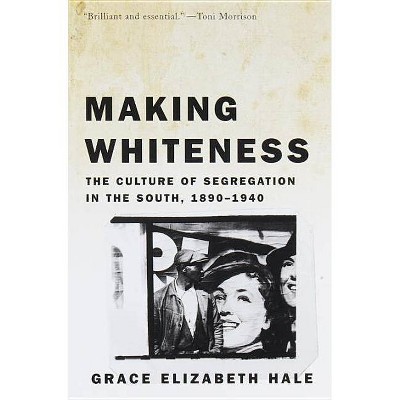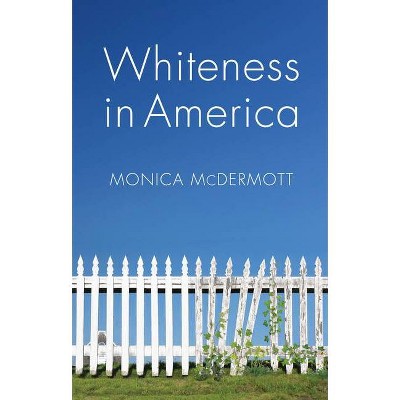Purchasing Whiteness - by Ann Twinam (Paperback)
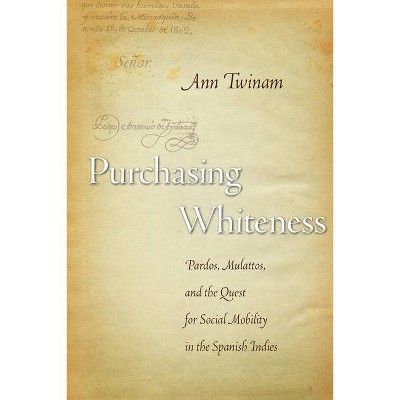
Similar Products
Products of same category from the store
AllProduct info
<p/><br></br><p><b> Book Synopsis </b></p></br></br>The colonization of Spanish America resulted in the mixing of Natives, Europeans, and Africans and the subsequent creation of a <i>casta</i> system that discriminated against them. Members of mixed races could, however, free themselves from such burdensome restrictions through the purchase of a <i>gracias al sacar</i>-a royal exemption that provided the privileges of Whiteness. For more than a century, the whitening <i>gracias al sacar</i> has fascinated historians. Even while the documents remained elusive, scholars continually mentioned the potential to acquire Whiteness as a provocative marker of the historic differences between Anglo and Latin American treatments of race. <i>Purchasing Whiteness</i> explores the fascinating details of 40 cases of whitening petitions, tracking thousands of pages of ensuing conversations as petitioners, royal officials, and local elites disputed not only whether the state should grant full whiteness to deserving individuals, but whether selective prejudices against the <i>castas</i> should cease. <i>Purchasing Whiteness</i> contextualizes the history of the <i>gracias al sacar</i> within the broader framework of three centuries of mixed race efforts to end discrimination. It identifies those historic variables that structured the potential for mobility as Africans moved from slavery to freedom, mixed with Natives and Whites, and transformed later generations into vassals worthy of royal favor. By examining this history of <i>pardo</i> and <i>mulatto</i> mobility, the author provides striking insight into those uniquely characteristic and deeply embedded pathways through which the Hispanic world negotiated processes of inclusion and exclusion.<p/><br></br><p><b> Review Quotes </b></p></br></br><br><i>Purchasing Whiteness</i> is quite simply, a magisterial tour de force that will be received as a significant contribution to the historiography of race in colonial Latin America. It exemplifies the very best of historical research. Twinam's groundbreaking methodology that connected previously unknown gracias al sacar documents amounting to some thousands of pages underlines the increasing importance of digital resources to historical research...Twinam writes with a striking immediacy, in a language that is accessible to undergraduates and advanced scholars alike, and I suspect that <i>Purchasing Whiteness</i> will rightfully become a core textbook on the complicated yet fascinating history of race in colonial Spanish America.--Cecily Jones "<i>H-Caribbean</i>"<br><br>Ann Twinam's long anticipated study of royal dispensations from the defect of African descent (<i>gracias al sacar</i>) proves well worth the wait . . . At over four hundred pages, this book will not find a place in the undergraduate curriculum, but it should be essential reading for graduate students and scholars of both Latin America and the history of race more widely. Twinam guides readers with clear chapter summaries, while also enticing them to keep turning pages to follow her detective-like investigations of both personal dramas and political debates.--Sarah C. Chambers "<i>American Historical Review</i>"<br><br>Beginning with a two-part historiographic and methodological introduction, Twinam guides readers through concepts of social mobility in the Spanish Indies from the arrival of African slaves until the Bourbon reforms . . . This book is an impressive methodological study for uncovering the voices of nonwhite colonial society . . . Recommended.--S.B. Opperman "<i>CHOICE</i>"<br><br>Quite simply, the author knows more about this subject than anyone else ever has. Her research is thorough, original, and imaginative. Above all, she demonstrates the larger relevance of what might first seem a narrow topic. These whitening petitions are valuable because they throw a sharp light on long-term, largely submerged processes of casta mobility. Some of the most interesting passages describe her detective work in tracking down whitening cases and uncovering the life stories of the petitioners.--R. Douglas Cope "Brown University"<br><br>Scholars of colonial Latin America will certainly appreciate the extensive archival work of this book. Ann Twinam demonstrates the making of <i>gracias al sacar</i>, or the purchase of whitening, in colonial Spanish America, specifically through its institutionalization, which makes her effort not just noteworthy but critical to advancing the field....Twinam's attention to detail, and her insistence on the correct versus incorrect interpretation of royal rulings, reveals an attention to the official narrative and a monumental institutional study, or a history of a policy.--Rachel Sarah O'Toole "<i>Hispanic American Historical Review</i>"<br><br>This is a massive, hefty piece of work, both in terms of length and depth of scholarship. I admit that I was rather daunted by its prospect, but once I started reading I was soon fascinated by the topic and the way it is presented. It'll win prizes. It's important.--Matthew Restall "Pennsylvania State University"<br><br>This meticulously researched, elegantly written book examines <i>casta</i> mobility....Twinam is the first to have described why the <i>gracias al sacar</i> appeared and what it meant. In accomplishing this herculean task, she did much more than analyze the whitening case histories, by telling the story of countless other <i>castas</i> who informally passed and struggled to provide a better life for their descendants. For anyone interested in understanding this process throughout the Americas, <i>Purchasing Whiteness</i> is essential reading.--David M. Stark "<i>New West Indian Guide</i>"<br><p/><br></br><p><b> About the Author </b></p></br></br>Ann Twinam is Professor of History at the University of Texas at Austin. She is the author of <i>Miners, Merchants, and Farmers in Colonial Colombia</i> (University of Texas Press, 1982) and of <i>Public Lives, Private Secrets: Gender, Honor, Sexuality, and Illegitimacy in Colonial Spanish America</i> (Stanford University Press, 1999). This latter book won the Thomas F. McGann Prize and was runner up for the Bolton Prize.
Price History
Price Archive shows prices from various stores, lets you see history and find the cheapest. There is no actual sale on the website. For all support, inquiry and suggestion messages communication@pricearchive.us
